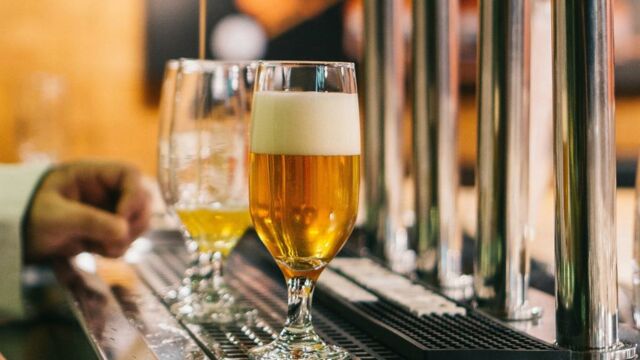Launched in 2014 by the British Department of Health and Social Care, the ‘Dry January’ campaign seems to be quite convincing since several million participants worldwide now do not consume alcohol during the first month of the year.
Discover our latest podcast
You only have to look at social media to realise the extent of the phenomenon. The more than 180,000 posts containing the #dryjanuary on Instagram at the beginning of this year bear witness to this. They offer recipes for non-alcoholic cocktails, phrases of encouragement—those famous ‘inspirational quotes’—and good reasons to follow the movement.
Becoming aware of one's consumption
According to a WHO report, alcohol kills 3 million people worldwide every year, i.e., 1 in 20 deaths. The many ravages of alcohol abuse are well documented: heart problems, diabetes, obesity, cancer, memory loss, reduced life expectancy... This is why making the decision to stop drinking alcohol, even for just one month, has several health benefits.
According to George F. Koob, Director of the National Institute on Alcohol Abuse and Alcoholism in the United States, who was interviewed by Self Magazine:
The main benefit [of] this abstinence is that it allows everyone to become aware of their body's relationship with alcohol and then to decide [what kind of relationship] they wish to have (...) If you have not been feeling at your best lately and this could be linked to regular or excessive alcohol consumption, it is interesting to see if you see an improvement in your condition (mental, physical, social…).
The health benefits of Dry January
Among the many benefits observed after one month of sobriety, we can note that:
- You will sleep better. Although alcoholic drinks knock you out and help you fall asleep more quickly, you will go straight into the deep sleep phase. This means that you miss out on a complete cycle of restful sleep. In addition, they tend to destroy a neurotransmitter, glutamate, which helps us stay awake. And when the brain notices this breakdown... it secretes even more of it. Finally, it is always better to wake up without a hangover.
- You'll have better skin. Alcohol has a diuretic effect so it promotes dehydration... and the skin is not exempt from these consequences. As a result, it dries out, becomes dull, and fine lines become more pronounced. Moreover, this sugar-rich liquid increases the glucose present in your blood and damages your cells. The epidermis is then less effective against external aggressions, allowing acne flare-ups to appear. One month of sobriety and you may notice an improvement in its quality.
- You will be in better shape morally. Regular alcohol consumption lowers serotonin levels in your brain. Certainly, in the short term, a beer in the evening after work has antidepressant effects. Over time, however, it has the opposite effect. If you are suffering from anxiety or depression, this will not solve your mental health problems. But you will surely notice a change in your mood, and you will be able to identify different solutions to deal with your problems.
- You may be able to lose weight. As a reminder, a pint or a tall glass of wine contains more than 200 calories, without even mentioning cocktails or alcohol mixed with sugary sodas. Giving up these ‘empty calories,’ which in no way satiate you, can reduce your waistline. With fewer fatty meals the day after to help deal with the hangover, your diet may also improve overall, and as your blood sugar level stabilises your cholesterol level should drop as well. On the contrary, after a month, your wallet could gain a bit of weight!
The limits of a month of sobriety
Should we then bet everything on a month of abstinence? According to Dr Mark Wright of the University Hospital Southampton Foundation Trust, this is not the ideal long-term solution. Asked by The Telegraph, he even considers it a ‘decoy.’ For him, the prospect of stopping drinking in January may encourage people to consume more alcohol during the holidays, in anticipation of a period of deprivation at the beginning of the year.
It's like spending a maximum of money for 11 months thinking you're going to solve your financial problems by living like a hermit for a month! It's not going to help if you then go back to your bad habits as early as February.
According to him, the most effective strategy is to reduce alcohol consumption throughout the year.
In the longer term
This opinion was qualified by Rajiv Jalan, professor of hepatology at University College London. More than 30% of the participants in his study said they consumed less alcohol after following Dry January. It is thus strongly advised to continue efforts beyond January in order to reap the long-term benefits of the experience.
If you have found that you enjoy the benefits of sobriety, it may encourage you to drink less. For starters, doctors recommend a minimum of two consecutive alcohol-free days per week, which is child's play if you are able to abstain for a whole month.
And for those for whom the challenge may prove difficult, the Alcohol Change association has a free app that will allow you to have a successful Dry January.















